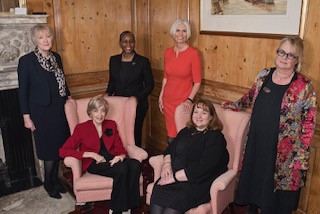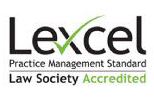scott-moncrieff: a virtual law firm offering FREEDOM FOR FREELANCE LAWYERS
This offer is not just about working alongside recognised leaders, it’s about ensuring every consultant lives and works in the way they want to – enabling them to be the best they can be for their clients while also getting their own work/life balance exactly right.
To make this work for our freelance lawyers, we provide:
state-of-the art
case
management and accounts systems
keep 70% of the fees you bill
supervision and guidance
Join scomo - virtual & remote legal jobs across the uk
Working for Scomo as a freelance lawyer allows you to be self-employed, work from home or satellite offices, manage your own hours and keep 70% of the fees you bill.
If you are interested in learning more about a career as a freelance lawyer and have at least five years PQE with relevant experience in a particular area of law then email This email address is being protected from spambots. You need JavaScript enabled to view it. and we will get straight back in touch with further details.
Scott-Moncrieff & Associates’ managing director, Lucy Scott-Moncrieff speaks to Patrick Wingrove about establishing the UK’s first virtual firm and managing employees from afar.
This article is reproduced from the February edition of Legal Practice Management. You can download this issue here.
SME law firms have started to embrace remote working because of advancements in legal tech and the realised benefits of a flexible workforce. But at the other end of the spectrum, virtual firms fully embraced remote working years ago – and some even before dial-up internet was invented. The UK’s first virtual firm, Scott Moncrieff & Associates, was founded as a solo practice by former Law Society president and human rights advocate Lucy Scott-Moncrieff in 1987.
“I established Scomo, as we call it, in London, shortly after my first child was born – to give myself the flexibility of self-employment to combine work with motherhood and the chance to focus on practising human rights. I didn’t need an office and it was cheap and easy to work from home – so that’s what I did.” Over the next 30 years Scomo developed into a ‘dispersed’ firm of over 40 fee earners offering commercial and social welfare services, and working remotely across the UK. Find out more about joining Scomo.
“THE KEY TO SCOMO’S BUSINESS MODEL IS ENABLING FEE EARNERS TO FOCUS ON REMUNERATED WORK. WE NEED OUR TEAM OF ADMINISTRATORS AND MANAGERS TO DO MUCH OF OUR CONSULTANTS’ UNREMUNERATED WORK FROM AFAR.”
“Advancements in technology allowed Scomo to become much more sophisticated in its support offering, and fee earners now have access to an array of legal tech systems. The business also became popular with solicitors who wanted the freedom and benefits of working remotely.” She adds that she fully believes in remote working as it gives employees a better work-life balance, and it has allowed her to run Scomo as managing director while working to promote, support and improve the legal sector.
“Remote working has allowed me to juggle motherhood with work and hold key appointments that have enabled me to help change legal for the better. Most recently I was appointed as commissioner of standards for the House of Lords.” She also acts as commissioner of the Judicial Appointments Commission, mental health tribunal judge on the Courts and Tribunals Judiciary, and chair of the Law Society’s Equality and Diversity Committee.
“I simply didn’t need an office – most of my clients were in hospital and because they couldn’t leave or even make phone calls at that time I had to go and visit them.”
Virtual practice management
Scott-Moncrieff says that Scomo evolved into the UK’s first virtual firm quite by chance.
“The concept of a virtual business didn’t really exist in 1987. I started working from home because I began to focus on human rights law and simply didn’t need an office – most of my clients were in hospital, and because they couldn’t leave or even make phone calls at that time I had to go and visit them.” The firm began to form into the first virtual firm when she later partnered with solicitor Anthony Harbour, who specialised in cases of children detained in psychiatric hospital, and who similarly didn’t need an office.
“Anthony and I worked independently and together, though at that point we were only connected by telephone and fax. But gradually, as word of mouth spread, more people wanted to work with us. I wanted to expand the firm by bringing on talent but wanted to keep our structure – so I devised a model where Scomo fee earners would essentially work as consultants.”
The firm’s fee earners are self-employed, work from home or satellite offices, manage their own hours, and keep most of the fees they bill – under Scomo’s umbrella. The firm takes a percentage of billings to support its business support function, which is managed by an administrative hub in London that provides an array of business support services.
“Scomo’s practice director is my right-hand man and runs the day-to-day operations of the firm from our business services hub – but we also employ an office manager, accountant and several office administrators.” She adds that it’s important for the firm to maintain this hub – which, among other things, manages the accounts and compliance functions, updates records, scans and sends mail, and maintains the firm’s legal tech – because it serves as the beating heart of the business.
“The key to Scomo’s business model, or any other virtual firm’s, is enabling fee earners to focus on remunerated work. Though we provide an array of tech solutions to drive efficiencies, we also need our team of administrators and managers to do much of our consultants’ unremunerated work from afar.”
But there are significant challenges to managing virtual workers across the country. Scott-Moncrieff says that if an issue arises in a traditional firm it’s easy to walk into someone’s office and have a chat with them – but that’s difficult when several Scomo lawyers work more than 50 miles away.
“Our model also requires practitioners to be extra diligent about uploading documents rather than just relying on hard copies – because we rely on updated online records to effectively run the business.” She adds that the firm keeps in regular contact with fee earners by phone, video or regular department meetings to ensure consultants’ needs are met and that they know what the business expects from them.
Managing fee earners from afar has, according to Scott-Moncrieff, become easier over the years as communication and legal technology improved.
“As tech advanced, the firm became more sophisticated in its ability to support and manage consultants. In the early 90s we only had telephone and fax, but now we use an array of solutions, including cloud-based case management, video comms, and accounting software.”
Using technology, the firm can effectively manage over 40 fee earners with only eight business support personnel – and has expanded its service offering by hiring lawyers specialising in company, commercial and private client work. But perhaps more importantly, says Scott-Moncrieff, being virtual has enabled the business to stay in legal aid and social welfare law, despite severe government cuts.
“When legal aid came under pressure a few years ago, many firms thought they could only offer it by having newly qualified solicitors working cases under the supervision of senior lawyers. But my argument was, and remains, that if firms cut overheads they can provide legal aid using experienced senior lawyers.” She adds that because Scomo’s virtual model eliminates the need for offices and its hub allows fee earners to focus on remunerated work, its overheads are lower and productivity is higher – which means consultants can offer a high-quality legal aid service while earning more than they might in a traditional firm.
Scomo’s virtual expansion, it seems, has paid off – between 2015 and 2016 the firm’s turnover increased by 22%. But Scott-Moncrieff and her management team aren’t stopping there.
“Scomo’s practice director has been mandated with the firm’s expansion – he, myself and the hub team are working together to improve our business support services to attract new consultants and increase their productivity.”
Not working "nine to five" - the advantage of working remotely for lawyers
Perhaps the key advantage of operating a virtual firm is the lure of remote working for talented workers.
“It’s particularly attractive for legal aid lawyers because of the model’s cost-saving benefits and the firm’s legal aid contracts. But many lawyers are looking to work with the benefits of remote working – some aren’t happy with their career progression, while others want greater flexibility and autonomy in their working lives,” says Scott-Moncrieff. She adds that the firm has recently had a huge influx of lawyers from big firms who wanted to escape the burdens of large firm life.
Scott-Moncrieff says she fully believes in remote working as a means of giving fee earners a better working life and making a business more competitive.
“First, many lawyers just want to practise law and don’t want the administrative and managerial responsibility of the partnership – but also they don’t want to be employees any more.” She adds that virtual firms like Scomo have become attractive alternatives for fee earners who just want to be “great lawyers” and who want the flexibility of self-employment, but don’t want to invest the capital in establishing their own practice.
“They’re happy because they can focus on practising the law and their salaries are often higher than they would find in traditional firms as a result.”
Another attractive aspect of Scomo’s dispersed model, according to Scott-Moncrieff, is that its workforce can work from virtually anywhere.
“When I was president of the Law Society, I spoke to a lot of lawyers who would say: ‘I come from this place but I’ve had to move to this place for work and I can’t serve my local community any more.’ I also met able lawyers who wanted to move away from the hustle and bustle of the city but again couldn’t.” In a virtual firm, however, people can work from wherever suits them, whether that be from home or just outside the city – as long as they have a good internet connection.
But most importantly, she says, Scomo consultants are in control of their lives and manage their own work.
“Working with us means that what you do is entirely within your control. Some consultants choose to work full-time for us and take on fairly substantial pieces of work, others work more part-time, and some work for other firms as well as us.”
But the dispersed model can be as beneficial to the business as it is to fee earners, because it maximises fee earner productivity, allows them to price competitively, and enables them to work to clients’ schedules.
“Reduced overheads enable solicitors to offer a high-quality service at a lower rate than competitors. But, more importantly, they can arrange their work day appropriately to meet clients outside of work hours if they request to – which gives them a real competitive edge.”
Though Scott-Moncrieff is proud of creating a firm with a structure that allows its workforce to be more flexible and competitive, keeping virtual lawyers happy and productive has its challenges.
“One of Scomo’s key challenges over the years has been making sure that consultants don’t feel lonely. We’ve long encouraged our employees to engage with each other, and we organise face-to-face unit meetings and pair people together where we can to facilitate that. It’s incredibly important for people to have a peer to talk to at work, someone who knows what they’re talking about and who can share ideas.” She adds that Scomo strives to make its workforce feel like part of the business and not just ‘hired hands’.
But despite its challenges, Scott Moncrieff is committed to the concept of remote working and believes that all firms should incorporate some form of flexible working into their businesses to allow employees to meet their full potential – inside and outside of work.
“It’s important for people to have the flexibility to lead their life outside work, whether that’s spending time with family or pursuing worthwhile causes.”
Scomo’s rising success over the past decade is indicative of the rise of virtual firms – and representative, perhaps, of legal’s move into a more nomadic future. Office-less virtual firms have fewer overheads and use an array of legal tech, buttressed by business support hubs, to maximise fee earner productivity. They’re also attractive businesses for fee earners looking for more flexibility and autonomy in their working lives – making these firms a competitive force to be reckoned with.
But there are valuable lessons to be gained from the rise of virtual firms. For one, firms that want to offer legal aid may only be able to do so by adopting some form of remote working set-up to drive down overheads. More generally, however, legal businesses should embrace the opportunities technology can bring them - including implementing a more agile way of working that will make the business more attractive and competitive.















